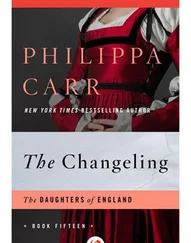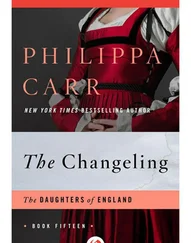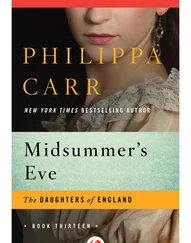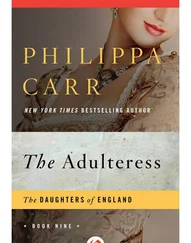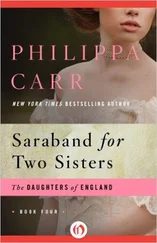Philippa Carr - Zipporah's Daughter
Здесь есть возможность читать онлайн «Philippa Carr - Zipporah's Daughter» весь текст электронной книги совершенно бесплатно (целиком полную версию без сокращений). В некоторых случаях можно слушать аудио, скачать через торрент в формате fb2 и присутствует краткое содержание. Жанр: Исторические любовные романы, на английском языке. Описание произведения, (предисловие) а так же отзывы посетителей доступны на портале библиотеки ЛибКат.
- Название:Zipporah's Daughter
- Автор:
- Жанр:
- Год:неизвестен
- ISBN:нет данных
- Рейтинг книги:4 / 5. Голосов: 1
-
Избранное:Добавить в избранное
- Отзывы:
-
Ваша оценка:
- 80
- 1
- 2
- 3
- 4
- 5
Zipporah's Daughter: краткое содержание, описание и аннотация
Предлагаем к чтению аннотацию, описание, краткое содержание или предисловие (зависит от того, что написал сам автор книги «Zipporah's Daughter»). Если вы не нашли необходимую информацию о книге — напишите в комментариях, мы постараемся отыскать её.
Zipporah's Daughter — читать онлайн бесплатно полную книгу (весь текст) целиком
Ниже представлен текст книги, разбитый по страницам. Система сохранения места последней прочитанной страницы, позволяет с удобством читать онлайн бесплатно книгу «Zipporah's Daughter», без необходимости каждый раз заново искать на чём Вы остановились. Поставьте закладку, и сможете в любой момент перейти на страницу, на которой закончили чтение.
Интервал:
Закладка:
After that he took me to those apartments where, in the past, he and his ancestors had entertained kings when they travelled in the district. In these rooms with their elegant furnishings, I was shown a different aspect of the château.
From the battlements one looked for miles over beautiful country to the town some way off with its shuttered houses and its narrow streets. There were so many impressions to absorb in a short time and I often thought: I will tell Dickon about this when we meet. He would be most interested and I was sure he would be in his element looking after an estate like this one.
But it was the people around me who interested me more than anything.
I was frequently with the Comte, for it seemed as though he could not have enough of my company, which considering the way in which he ignored Sophie was remarkable. I had obviously made a great impression on him, or it may have been that he had really loved my mother and I reminded him of that long-ago romance. I wondered. She must have been very different from the people he would have known. I had seen a portrait of his wife and she was just like Sophie, timid and nervous-looking. She had been very young obviously when the portrait had been painted.
Sometimes Sophie would come to my room and Lisette would join us. I felt sometimes that Sophie wanted to forbid the girl’s intrusion but she seemed afraid of her, as she was of so much.
I myself was rather pleased when Lisette came, for her conversation was lively and in spite of the fact that I was growing fond of Sophie, I did not find her company very enlivening.
I had caught a glimpse of the formidable Tante Berthe, a big woman with a stern face and tight lips which looked as though they would find it very difficult to smile. I had heard that she was very pious and kept the serving girls in order, which, Lisette told me, was quite a task as the men were always trying to seduce the girls.
‘You know what men are,’ said Lisette, laughing at me. ‘They are torn between their desire for the girls and their fear of Tante Berthe. If any of them were caught in what they call flagrante delicto, which means caught in the act, she would insist on their being dismissed.’
‘Surely the Comte would not allow that to happen.’
‘You mean in view of his own inclinations.’ Lisette continued to laugh. She did not seem to care what she said about anyone and I was sure she would never restrict her own behaviour. It was true that she had the redoubtable Tante Berthe behind her and that lady would surely not allow her own niece to be turned away.
Lisette liked to talk about lovers and I thought she did it to tease Sophie. I quickly came to the conclusion that she very much enjoyed showing her superiority in wit and looks over poor Sophie.
‘One day a husband will be found for me,’ she said, ‘just as yours will be, Sophie.’ Her mouth hardened. ‘The difference will be that yours will be a nobleman and mine a good solid member of the bourgeoisie who finds favour with Tante Berthe.’
Sophie looked apprehensive as she always did at the mention of marriage.
‘It might be very pleasant,’ I told her.
‘I know it will be awful,’ she replied.
I told them about Dickon and they listened avidly, especially Lisette.
‘Trust you,’ said Lisette, who enjoyed treating me with a mingling of familiarity and camaraderie, as though we were two of a kind.
‘It can’t be long now,’ said Sophie mournfully. ‘I shall be taken to Court. Papa thinks I shall be perfectly safe there. The King likes young girls but he won’t look at me.’
‘I sometimes think,’ said Lisette, ‘that I should like to be selected by the King’s pander to minister to His Majesty’s delight.’
‘Lisette!’
‘Well, it would be better than being pushed off to some boring old gentleman who has a little money but not too much, for being the niece of a housekeeper—even such a housekeeper—does not warrant too much.’
‘You mean you would like to go the Parc aux Cerfs?’ asked Sophie incredulously.
‘They say it is most luxurious and when the King grows tired of the girls they are given a good dowry and can marry, which they do, the dowry making them very desirable. Those dowries, they say, are more than an average husband can earn in a very long time. So those girls—and their husbands—are lucky. Don’t you think so, Lottie?’
I pondered it. ‘I believe a lot of people starve here and in England,’ I said. ‘But from what I hear it is worse in France. If those girls please the King in that way of their own free will and are paid for it, it may be it is better than living in dire poverty all their lives.’
‘You talk like Armand,’ said Sophie. ‘He is very loyal to the King and would like to live just as he does. He loathes the complaining poor—especially when they riot. He says they will never be content whatever they have so why bother to make conditions better for them.’
‘It is hard to pass an opinion on those girls,’ I temporized. ‘One would have to experience the sort of places they come from. Perhaps we are complacent … and lucky never to have known hardship.’
Lisette was studying us thoughtfully, but she did not speak which was unusual for her.
‘At least,’ said Sophie, ‘they can choose their own husbands.’
Poor Sophie, she was always uneasy when marriage was talked of.
I had been at the château a week when the Comte announced that he was going to take me to Paris and perhaps if possible give me a glimpse of the Court at Versailles.
I was greatly excited, but when he said that Sophie should accompany us she was thrown into a state of apprehension because she was afraid a husband would be found for her.
A few days later we were in Paris. I was so fascinated by this great and enchanting city that I did not think of Dickon for two whole days before I realized the omission and reproached myself for it.
We went first to the Comte’s magnificent town house—one of the mansions situated in the Rue Saint-Germain which were called hôtels and belonged to the country’s most wealthy noblemen. With their emblazoned pediments these tall buildings were very grand and impressive. The house was as luxuriously furnished as some parts of the château but in the style which had become so popular during the reign of Louis XV—a combination of classic severity and the rococo. I knew little of such things than I learned later. All I was aware of at that time was that the exquisite beauty overwhelmed me, and it gave me infinite pleasure merely to look at the beautiful chairs upholstered in Gobelin tapestry and the unusual sofas called sultanes, the carved cabinets and the inlaid tables. The rugs and carpets were of delicate colouring and toned beautifully with the paintings which adorned the walls. The Comte pointed out with pride his Boucher and Fragonard—two painters who had just been making their way when he had bought their pictures and were now Court Painters for the King, who might be profligate and given more to erotic pursuits than matters of state, but certainly had an appreciation of art. This had been encouraged by Madame de Pompadour when she had been alive and ruled the country through her lover.
I was enchanted by the mansion but even more so by what was inside it.
Then there was Paris itself—city of charm, noise, gaiety, mud and … contrasts. Perhaps it was the last of these which struck me more than anything else, when I come to look back—those few glimpses I had of the squalor and horror which existed side by side with the utmost elegance and richness.
The Comte was determined that I should love Paris. I was to discover later that there was a motive in this and that he and my mother were planning to divert my thoughts from Dickon. At that time I put it down to an intense national pride. And indeed he had much to be proud of in that respect.
Читать дальшеИнтервал:
Закладка:
Похожие книги на «Zipporah's Daughter»
Представляем Вашему вниманию похожие книги на «Zipporah's Daughter» списком для выбора. Мы отобрали схожую по названию и смыслу литературу в надежде предоставить читателям больше вариантов отыскать новые, интересные, ещё непрочитанные произведения.
Обсуждение, отзывы о книге «Zipporah's Daughter» и просто собственные мнения читателей. Оставьте ваши комментарии, напишите, что Вы думаете о произведении, его смысле или главных героях. Укажите что конкретно понравилось, а что нет, и почему Вы так считаете.



